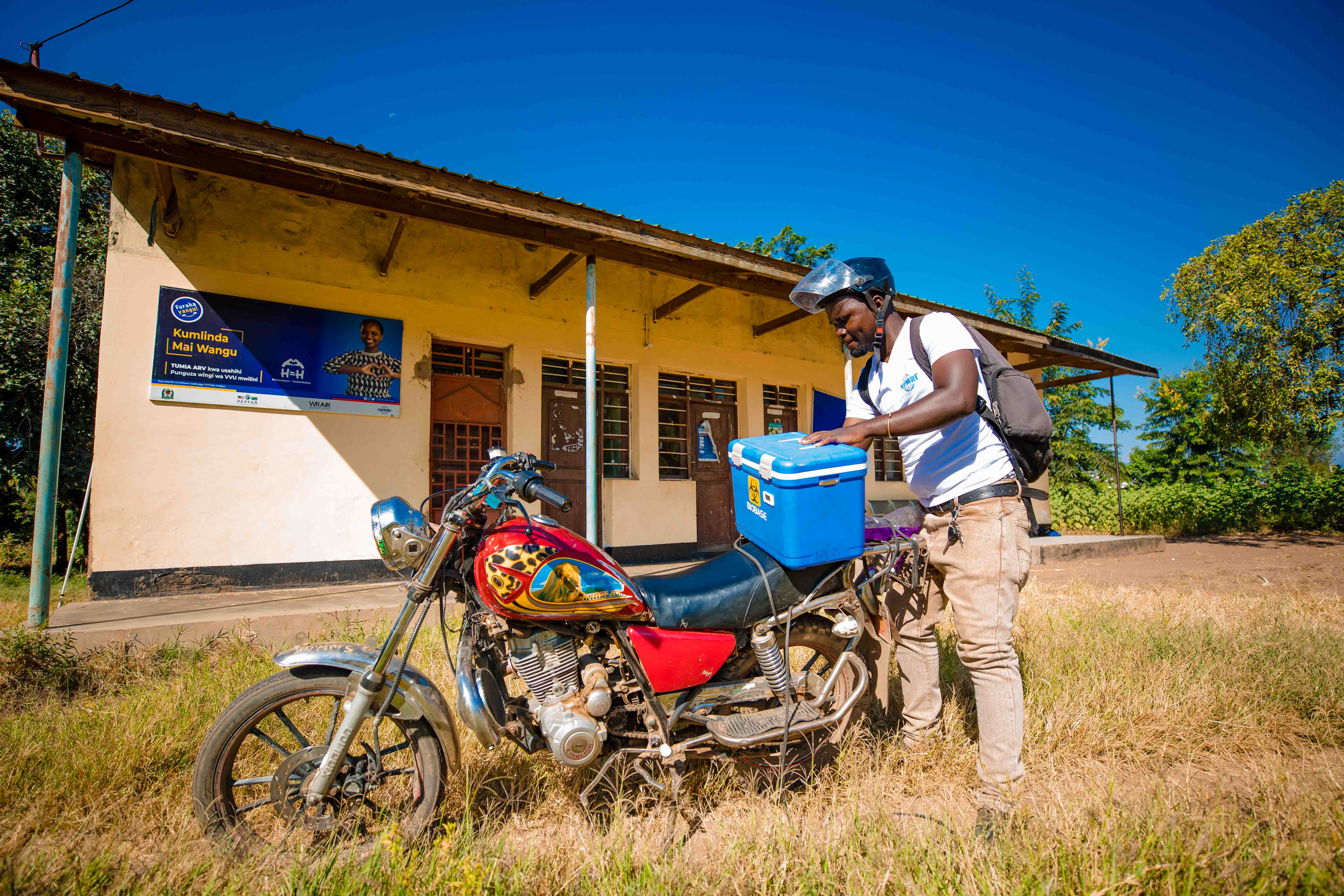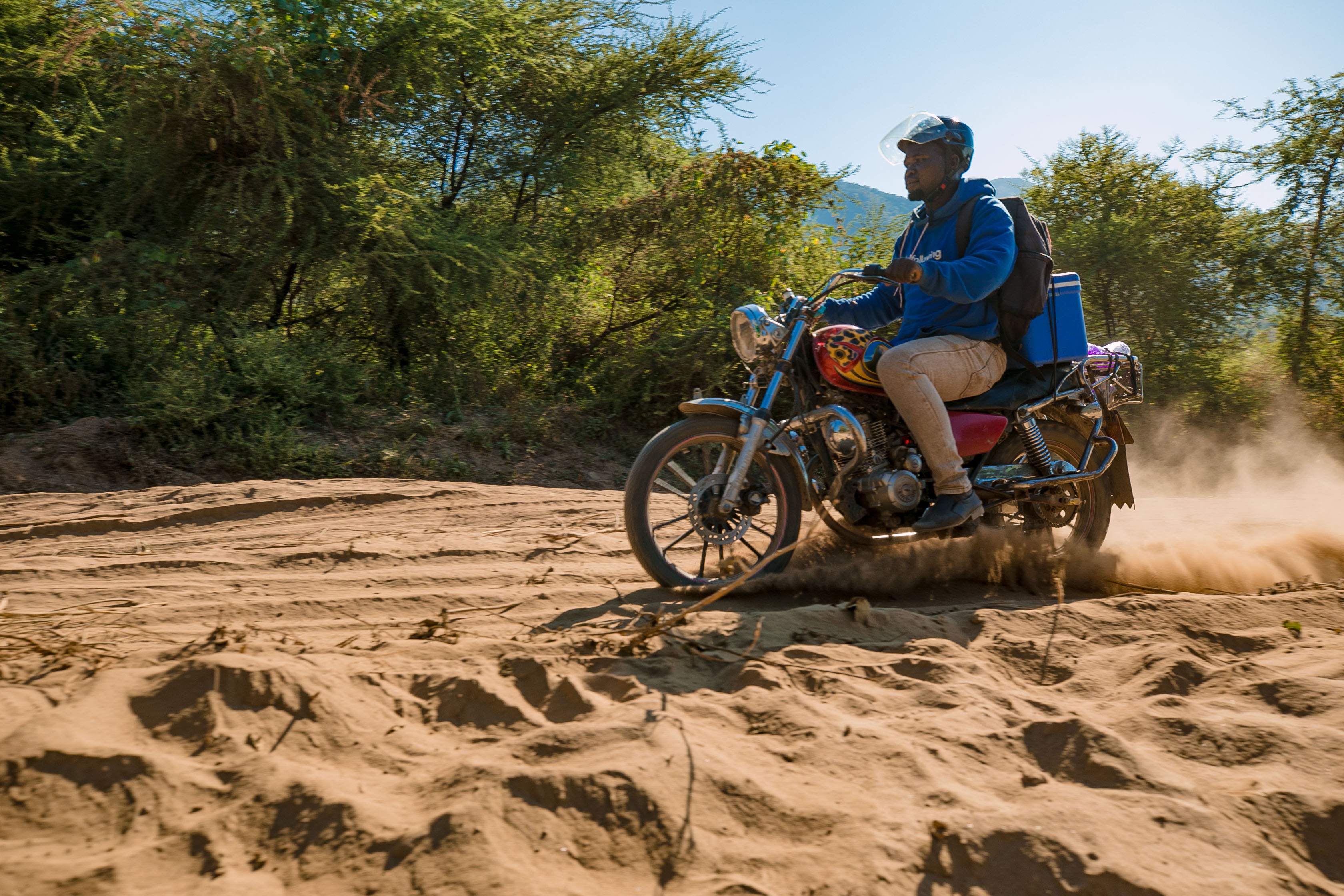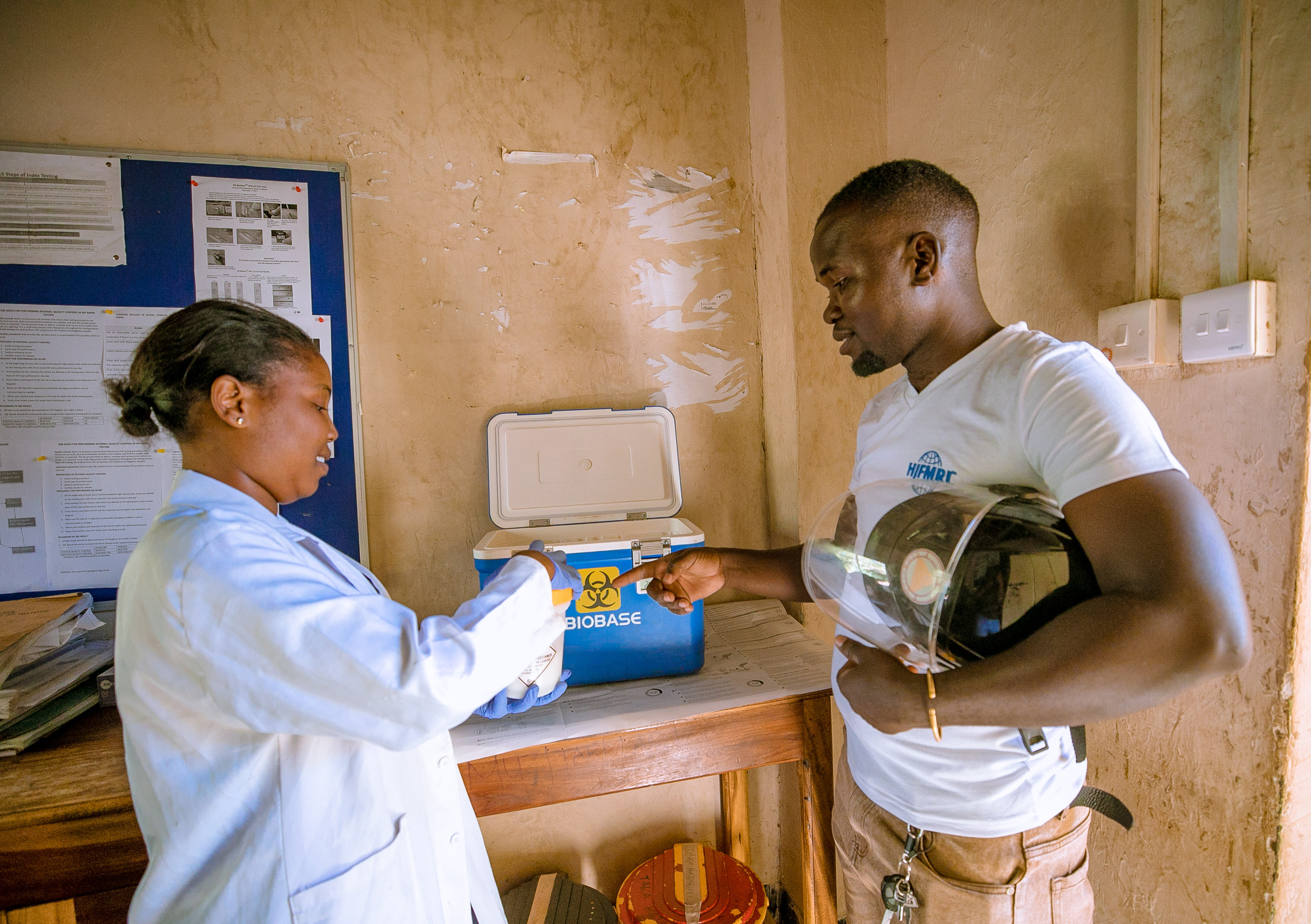
Efficient sample transportation is critical in delivering quality HIV services to ensure timely diagnoses and prompt access to care and treatment. Muze village in the Sumbawanga District of Tanzania’s Rukwa Region faces multiple challenges in transporting samples to labs due to its infrastructure: rough roads, limited mobile health services, and minimal public transport options.
For years, residents of the village have relied on a simple but powerful solution to overcome these obstacles: using local bodaboda (motorcycle) drivers to transport medical samples. With support from HJFMRI, this grassroots solution has become a critical resource for people living with HIV (PLHIV) in remote areas, ensuring that no one is left behind.
“Sample transportation using bodaboda riders is not just a logistical task, it’s a lifeline,” says Dr. Fatma Urassa, Medical Officer In-Charge at Muze Health Centre. “This model has improved client retention and viral load suppression rates because we receive samples and results on time, enabling prompt care.”
Bridging the Distance
Before HJFMRI began supporting sample transportation, challenges made it nearly impossible for clients to access essential HIV monitoring/diagnostic services, particularly viral load (VL) testing, CD4 testing and HIV Early Infant Diagnosis (EID).
In 2021, with funding from PEPFAR through the U.S. Military HIV Research Program at the Walter Reed Army Institute of Research, and in collaboration with the Rukwa Regional Health Management Team, HJFMRI launched a community-based and cost-effective integrated sample referral system. At the heart of this system are trained, locally based motorcycle drivers who transport samples from peripheral health facilities (spokes) to central storage hubs, and from there to the Regional Referral Laboratory. This “spoke-to-hub” model has proven to be transformative.

One of the local heroes of this initiative is Simon Kazule, a dedicated bodaboda driver from Muze village.
Simon joined the initiative in 2021, when HJFMRI commissioned a logistics company to support sample transportation. His exceptional dedication and ability to navigate difficult terrain quickly made him indispensable. When the contract with the logistics company ended later that year, Simon continued under direct management by CHMT and Muze Health Centre due to his outstanding service.
“Every trip I make is more than just a ride, it’s a step toward saving a life,” says Simon. “I’m proud to be part of this mission.”
Each day, Simon travels over 140 kilometers, collecting samples from six health facilities and delivering them to Muze Health Centre. His work ensures blood samples reach testing labs on time and that results are swiftly returned to clients, improving patient management and outcomes.
Turning the Tide in HIV Care
Before the bodaboda model, lab samples were often spoiled or rejected due to long transit times.
“We could barely reach more than six satellite spots a week,” recalls Agness Komba, Laboratory Technician at Muze Health Centre. “Samples would sit for days. Some got rejected. This led to poor monitoring and care that led to client treatment interruptions, especially for HIV-exposed infants.”

Today, the picture is remarkably different.
“With the bodaboda model, about 18–30 laboratory samples are now picked up and delivered daily at Muze Health Centre,” says Agness. “We now receive viral load results within 10 to 14 days, compared to more than a month previously. Clients are staying in care, and many are achieving viral suppression.”
At Muze alone, more than 1,639 clients are currently on HIV treatment. Of those, more than 98.8% have achieved viral load suppression in the past year, a significant milestone for a rural health facility
A Regional Transformation
Marykiada Mwanji, Rukwa Regional Laboratory Technologist, sees this as a game-changer for HIV care in the region.
“Clinicians can now prescribe timely interventions. For viral load testing, distance is no longer a bottleneck to the monitoring of patients who live in rural areas,” she explains. “Using bodaboda riders, the lab now receives around 195 samples daily, and with a strong sample transportation modality, we’ve cut turnaround times by at least 20 days. Previously, results took up to 30 days compared to two weeks as of current.”
Victor Simon, HJFMRI Regional Laboratory Lead, echoes that sentiment:
“This model solves one of the biggest challenges in rural HIV care because it provides reliable, fast transport and is very cost effective. We’ve improved sample integrity and reduced turnaround time from 20–30 days to just 10–14 days. It aligns with national benchmarks and is a scalable solution with real, measurable impact.”
Beyond HIV Samples
The success of the model extends beyond HIV diagnostics. The integrated transport system now also delivers essential medications, supplies, and medical tools to peripheral facilities. This has reduced the dependency on costly ambulance or council vehicle transport and significantly improved service delivery speed.
HJFMRI has also introduced digital platforms to track samples in real time between collection points and labs, improving oversight and reducing delays.
By leveraging local talent and encouraging community ownership HJFMRI has proven that innovative, grassroots approaches can revolutionize HIV care even in Tanzania’s most remote areas.
“We couldn’t have achieved this without our bodaboda riders,” says Dr. Urassa. “They are frontline health workers.”